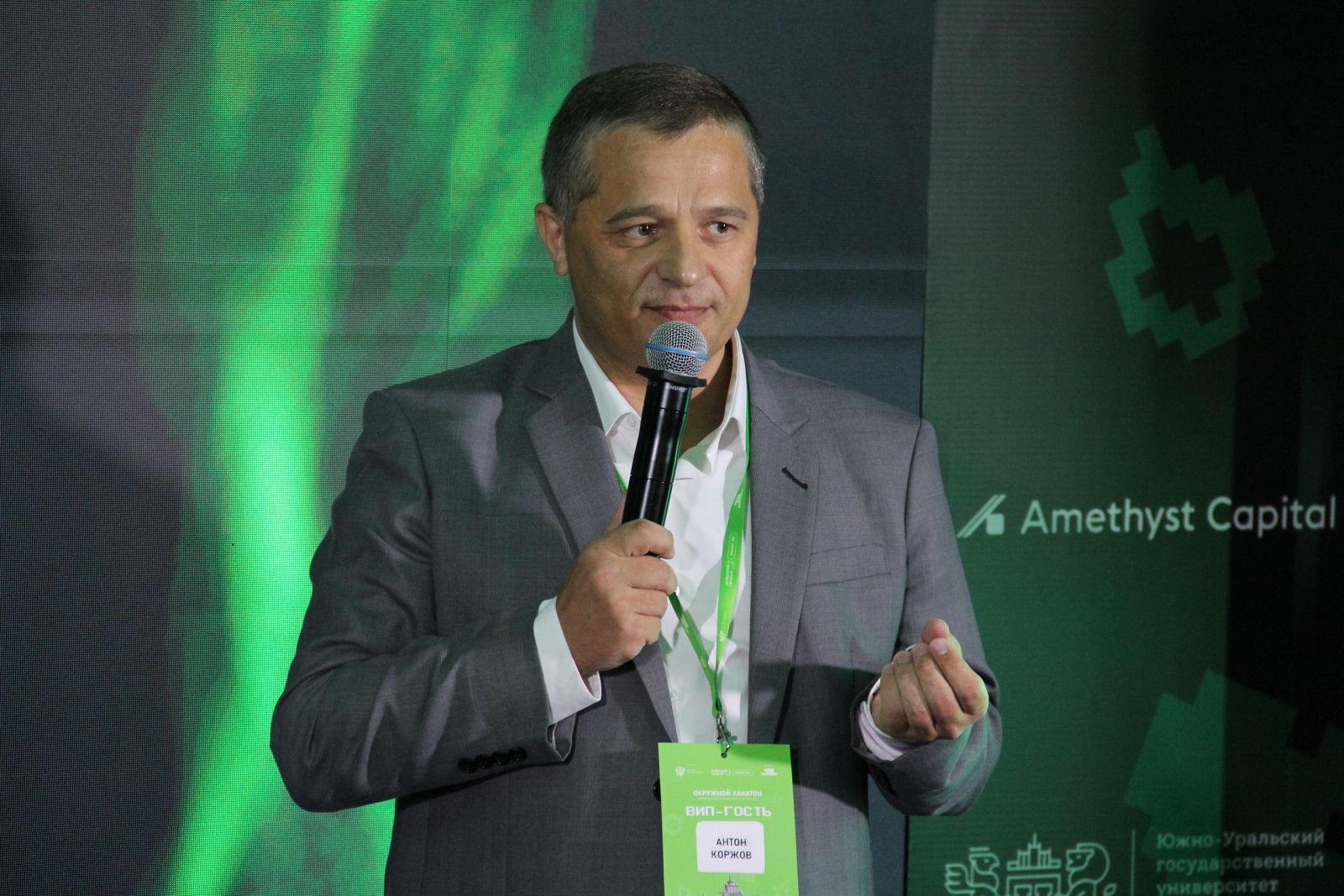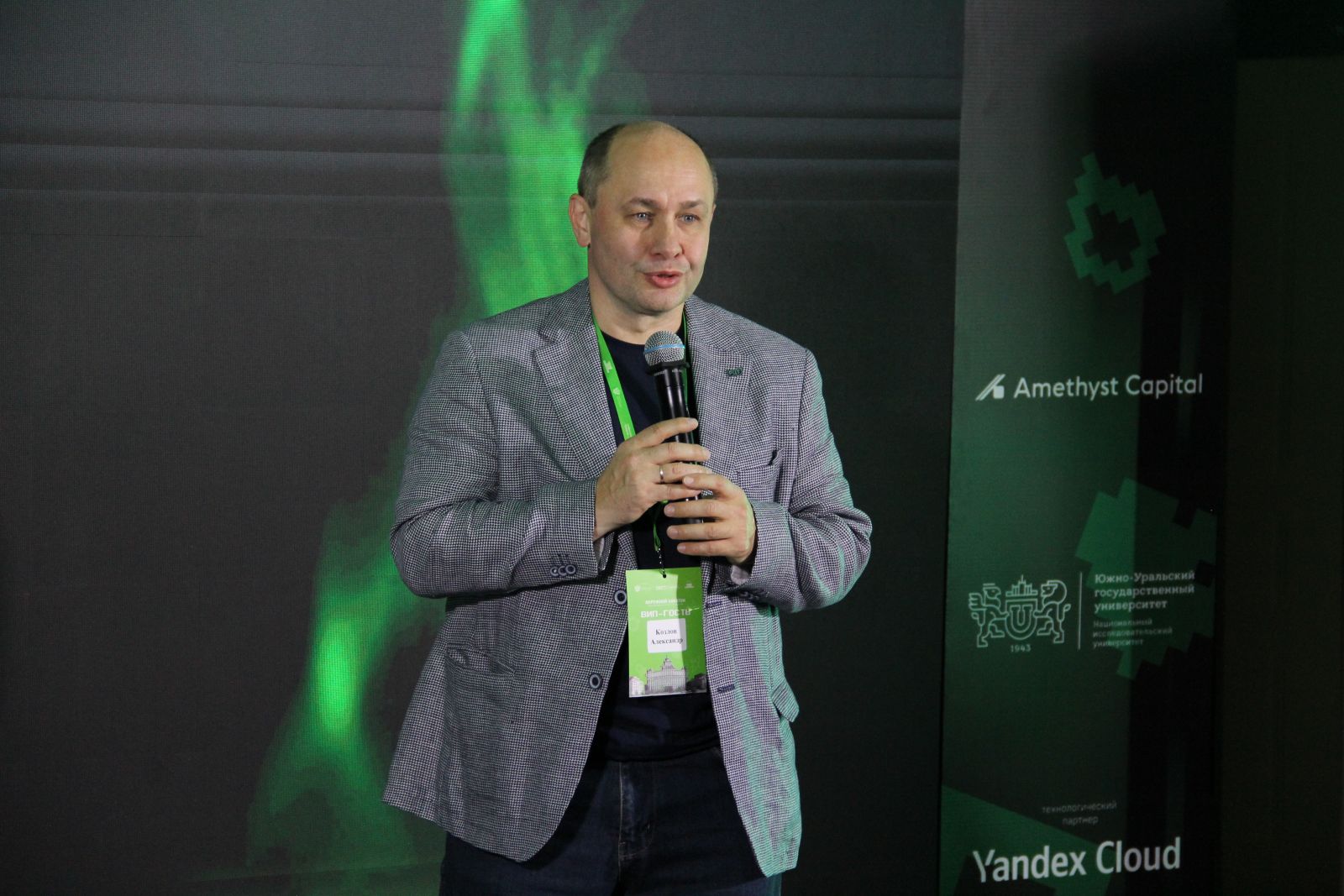On May 17th-19th, the Ural Federal District Hackathon of the "Digital Breakthrough. Season: Artificial Intelligence" project was held in Chelyabinsk at the premises of South Ural State University, organized by the Ministry of Economic Development of the Russian Federation and the Russia Is a Land of Opportunities non-profit organization.
The competition was attended by 800 participants, of which more than 500 were beginners participating in the event for the first time. Of the 115 teams, 21 arrived in Chelyabinsk, the remaining participants were present online. These were mainly teams from the cities of the Ural Federal District, as well as from other cities. Programmers from Saratov, Moscow, Arkhangelsk joined the hackathon. In the same way, residents of the Ural region have a chance to participate in the next district hackathon in Vladivostok.
The competition lasted 43 hours, and at night some of the team members could go to a specially designated sleep area, while others continued to work. It was also possible to switch attention at an HR session − a meeting with potential employers, or at master classes such as "Sprint on Visual Communications" or "How an Introvert Can Become Successful."
The participants of the Ural stage were given 5 tasks that needed to be solved using artificial intelligence. Two of those were proposed by Russian Railways: automatic recording of employment books with handwriting recognition, as well as automatic analysis of official conversations between drivers and dispatchers. MediaWise Company needed to develop a creative filter that would track the advertising activity of famous brands. By order of the Ministry of Natural Resources and Ecology of the Russian Federation, it was proposed to recognize species of artiodactyls (roe deer, deer and musk deer) from photographs. The Amethyst Capital Company proposed creating a classifier of construction resources that would allow assessing the quality characteristics of building materials.
The projects of 81 teams were accepted for the final defence; not all of them made it to the finals. But choosing winners from those who presented the results, according to the organizers, turned out to be difficult − most of the work was done perfectly. Even those who did not present a completed software product could participate in the defence with the concept of their work, sometimes such solutions turned out to be more reliable than simple ones.
For example, as Andrey Beliaev, Head of the Technical Policy Service of South Ural Railway, explained, in the case of the task of recognizing official conversations between drivers, you can configure the system so that it responds to keyword signals, or you can create a system that analyses not only the words themselves, but also their context.
One way or another, the winners’ projects will be accepted for analysis, and some of them may be put into practice.
The winners of third places and of certificates worth 100,000 roubles were the teams Ghostcoders, SNU MISIS, Graphic Key, Point of No Return, and Ural Tangerines − they all participated online.
Second place and certificates worth 200,000 roubles went to the teams PedroTeam (SUSU, Chelyabinsk), Moad.Dev (Tyumen), who participated in person, as well as the teams Zavodchane, and Lenivye golubtsy, MISIS 42. The guys from SUSU also received a laptop, a special prize from the Sila company.
First place and certificates worth 300,000 roubles were won by the teams SweepNet (Moscow-Saratov); Ekb-team (Yekaterinburg); Swan, Pike and Crawfish (Yekaterinburg); Invexion (Moscow, MIREA Institute), DataForce (Arkhangelsk) − all were online participants.
The PedroTeam team from SUSU took part in the Hackathon for the first time and immediately became prize winners. The guys are first-year students of groups КЭ-101 and КЭ-108 at the School of Electronic Engineering and Computer Science, and before that they had been classmates at school. Using Python, they created a neural network that allows them to automatically process railway workers’ employment books filled with different handwritings.
"Thank you to everyone who supported us," thanked SUSU student Ivan Olianishin. "We really liked both the atmosphere and the tasks, everything turned out to be cool, and we will be happy to participate in the Hackathon again and again."
The MOAD.DEV team arrived from Tyumen. The team is united and this is not the first time they have participated in the Hackathon. They solved the problem of a construction resource classifier.
"There are five of us in the team and everyone ended up in their place − according to desires, according to competencies, according to circumstances," said Tyumen State University student Danil Krivorogov. "Of course, we chose the task in advance, and there was a rough understanding of who would do what. We trained the neural network using Sentence Transformers. Participation gave moral satisfaction from the product that we made, maybe not perfect, but not bad!"
The Tyumen guests had to sleep very little, but they noted that the sleeping areas were well equipped, there was an opportunity to relax, and the food was well organized.
The closing ceremony of the Hackathon was attended by Deputy Governor of the Chelyabinsk Region Aleksandr Kozlov. He had the opportunity to connect his life with both computer technology and construction, because in 1996 he graduated from the Department of Electronic Computing Machine of Chelyabinsk State Technical University (the future SUSU), and in 2020-2021 he held the position of Deputy Minister of Construction and Housing and Communal Services of the Russian Federation. And of course, most of all he liked the projects related to both industries − classifiers of construction resources, thanks to which the creation of technical estimates and technical specifications is facilitated.
"The Chelyabinsk Region was great as host of the Hackathon, in which there were more than 800 participants, of which more than 500 were newcomers, which means that more and more fresh participants, smart and good guys are coming to the IT field," said Deputy Governor Aleksandr Kozlov. "The teams presented excellent results; the case holders, the companies that formulated the tasks, were satisfied. It is gratifying that among the winners there are Chelyabinsk residents and SUSU students. I am sure that this Hackathon will benefit the IT industry of the region, but also South Ural Railway and the Ministry of Construction of the Russian Federation."
The First Vice-Rector for Research at South Ural State University Anton Korzhov congratulated the winners and participants on behalf of the university management.
"One of the areas that is intensively developing today at SUSU is technology using artificial intelligence," said SUSU Vice-Rector Anton Korzhov. "One of our teams reached the final. But everyone who participated benefited because solving intellectual problems at speed allows you to organize yourself, gain unique experience, and maybe find a place for future employment."

Anton Korzhov noticed that at the opening ceremony of the Hackathon, the eyes of the participants were shining with joy, but at the closing ceremony, sadness was mixed with joy and satisfaction with the result − three days of intense and interesting work ended. And of course, future victories and results for young IT specialists are still ahead!





